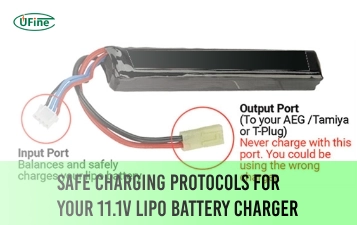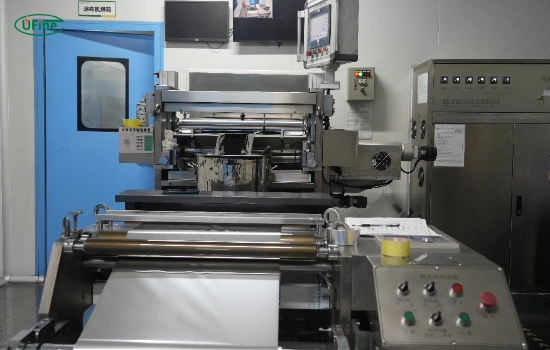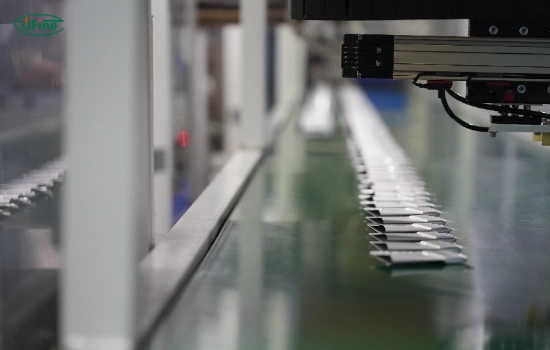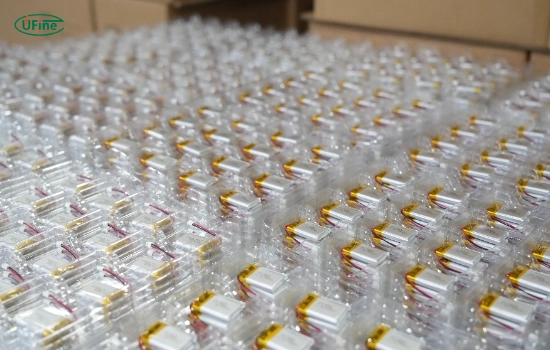In today’s fast-paced world, batteries are essential in powering our everyday devices. The demand for reliable and efficient batteries is ever-growing, from smartphones to electric vehicles. Wholesale battery options offer significant advantages for businesses and individuals looking to purchase in bulk. This comprehensive guide will explore everything you need about wholesale batteries, from types and benefits to tips on finding the best suppliers.
Part 1. What is a wholesale battery?
A wholesale battery is purchasing large quantities, typically at a discounted price. This bulk-buying approach benefits businesses, retailers, and even individuals who require many batteries for various applications. Wholesale batteries can include multiple types: lithium polymer batteries, lithium-ion batteries, 18650 batteries, lifepo4 batteries, low-temperature batteries, high-temperature batteries, ultra-thin lithium batteries, and curved lithium batteries. These types cater to different needs and applications, from consumer electronics to industrial machinery, ensuring that the right battery solution is available at a competitive price.
Part 2. Types of batteries available for wholesale
When considering wholesale battery purchases, it’s essential to understand the different types of batteries available. Here are some of the most common ones:
Lithium Polymer Battery
Lithium Polymer (LiPo) batteries are known for their lightweight, flexible form factor. Their high energy density and customizable shapes make them popular choices in consumer electronics, drones, and RC vehicles.
Lithium-ion Battery
Lithium-ion batteries are popular in portable electronics, electric vehicles, and renewable energy storage systems. They offer high energy density, lightweight design, and long cycle life.
18650 Battery
Manufacturers commonly use the 18650 battery in flashlights, laptops, and power tools due to its lithium-ion composition. It is cylindrical and known for its high capacity and reliability.
LifePO4 Battery
LifePO4 (Lithium Iron Phosphate) batteries are known for their safety, long life, and thermal stability. People commonly use them in electric vehicles, solar energy systems, and portable power stations.
Low-temperature Battery
Manufacturers design low-temperature batteries to perform well in cold environments. People use them in outdoor equipment, military devices, and winter sports gear.
High-temperature Battery
High-temperature batteries can operate efficiently in hot conditions. They are ideal for industrial applications, automotive use, and environments with extreme heat.
Ultra-thin Lithium Battery
Manufacturers design ultra-thin lithium batteries to be slim and lightweight, making them suitable for wearable devices, smart cards, and other compact electronics.
Curved Lithium Battery
Manufacturers mold curved lithium batteries into different shapes due to their flexibility. Designers use them in innovative products like curved smartphones, medical devices, and flexible displays.
Part 3. Benefits of buying batteries wholesale
Purchasing batteries wholesale offers numerous benefits, making it an attractive option for many businesses and individuals. Here are some key advantages:
Cost savings
One of the primary benefits of buying batteries wholesale is the significant cost savings. Bulk purchasing often comes with discounted prices, allowing you to save money compared to purchasing individual units.
Consistent supply
For businesses that rely on a steady supply of batteries, wholesale purchasing ensures that you have a consistent and reliable inventory. This is particularly important for retailers and manufacturers.
Variety and customization
Wholesale suppliers often offer a wide range of battery types and specifications, allowing you to choose the best option for your needs. For instance, Ufine Battery provides OEM and ODM services, making it a reliable manufacturer of lithium-ion batteries that can cater to specific requirements.
Reduced packaging waste
Buying batteries in bulk reduces the amount of packaging waste, which is beneficial for the environment. It also simplifies inventory management by reducing the need for frequent reordering.
Part 4. How to choose the correct wholesale battery supplier?
Selecting the right wholesale battery supplier is crucial to ensure quality, reliability, and cost-effectiveness. Here are some tips to help you make an informed decision:
Research and reviews
Start by researching potential suppliers and reading customer reviews. Look for feedback on product quality, customer service, and delivery times to gauge the supplier’s reputation. For example, Ufine Battery has many successful customer case studies.
Product range
Choose a supplier that offers a wide range of battery types and brands. This ensures access to the batteries you need and provides flexibility for future requirements.
Quality assurance
Ensure that the supplier follows strict quality control measures and offers batteries that meet industry standards. Ask for certifications and test reports to verify the quality of their products.
Pricing and terms
Compare prices from different suppliers and consider the terms of sale, including minimum order quantities, payment terms, and delivery options. Look for suppliers that offer competitive pricing without compromising on quality.
Customer support
Reliable customer support is essential when dealing with wholesale transactions. Choose a supplier that provides excellent customer service and is responsive to your inquiries and concerns.
Part 5. Typical applications for wholesale batteries
Various industries use wholesale batteries in a wide variety of applications. Here are some common uses:
Consumer electronics
Consumer electronics rely heavily on batteries, From smartphones to tablets to laptops and cameras. Wholesale purchases ensure a steady supply for retailers and manufacturers.
Automotive
Automotive applications commonly use lead-acid batteries, including starting, lighting, and ignition (SLI) systems. Electric vehicles also use lithium-ion batteries for propulsion.
Renewable energy
Solar and wind energy systems use batteries to store excess energy for later use. These applications commonly use lithium-ion batteries due to their high energy density and long cycle life.
Industrial equipment
Many industrial tools and machines require batteries for operation. Power tools, heavy machinery, and backup power systems often use NiMH and NiCd batteries.
Medical devices
Medical devices such as pacemakers, defibrillators, and portable diagnostic equipment rely on batteries for reliable operation. Wholesale purchases ensure that healthcare providers have a consistent supply of batteries.
Part 6. Safety tips for handling and storing wholesale batteries
Handling and storing batteries properly is essential to ensure safety and longevity. Here are some tips to keep in mind:
Proper storage
Store batteries in a cool, dry place away from direct sunlight and extreme temperatures. This helps prevent degradation and extends the lifespan of the batteries.
Avoid physical damage
Handle batteries carefully to avoid physical damage, such as punctures or dents. Damaged batteries can leak or catch fire, posing safety risks.
Use appropriate chargers
Always use chargers that are compatible with the specific type of battery. The wrong charger can cause overheating, short circuits, or other safety hazards.
Follow manufacturer guidelines
Adhere to the manufacturer’s guidelines for charging, discharging, and storing batteries. This ensures safe and optimal performance.
Part 7. Tips for maximizing battery life
Maximizing the life of your batteries is essential for cost savings and efficiency. Here are some practical tips:
Avoid overcharging
Overcharging can shorten the lifespan of batteries. Use chargers with automatic shut-off features to prevent overcharging.
Regular maintenance
Perform regular maintenance on batteries, such as cleaning terminals and checking for signs of wear. This helps ensure reliable performance and longevity.
Optimal usage
Avoid exposing batteries to extreme temperatures and high humidity. Use batteries within their recommended operating conditions to maximize their lifespan.
Rotate inventory
If you have a large stock of batteries, rotate your inventory to use older batteries first. This helps prevent batteries from sitting unused for extended periods.
Part 8. FAQs
-
What are the advantages of buying wholesale batteries for small businesses?
Small businesses can benefit from cost savings, consistent supply, and reduced packaging waste when buying wholesale batteries. It also allows them to access various battery types and specifications. -
How can I ensure the quality of wholesale batteries?
Ensure quality by choosing reputable suppliers, checking for certifications, and asking for test reports. Research and read customer reviews to gauge the supplier’s reliability. -
Are there any environmental benefits to buying batteries wholesale?
Buying batteries wholesale reduces packaging waste and supports bulk recycling programs offered by suppliers. It also helps in choosing sustainable materials and energy-efficient batteries. -
What types of batteries are commonly used in renewable energy systems?
Renewable energy systems commonly use lithium-ion batteries due to their high energy density and long cycle life. They are ideal for storing excess energy from solar and wind sources. -
What should I consider when storing large quantities of batteries?
When storing large quantities of batteries, consider factors such as temperature control, avoiding physical damage, using appropriate chargers, and following manufacturer guidelines for safe storage.
Related Tags:
More Articles

Safe Charging Protocols for Your 11.1V LiPo Battery Charger
Safely charge your 11.1V LiPo battery by following proper rates, using safety tools, and avoiding common charging mistakes.
11.1 V LiPo Battery Airsoft: Boosting Field Performance
Upgrade your airsoft gun with an 11.1V LiPo battery for faster firing, longer runtime, and top-tier performance on the battlefield.
Batteries for Trolling Motors Lightweight vs. Leaf Blower Power
Explore the best lightweight trolling motor batteries and how they compare to leaf blower power for performance, portability, and runtime.
What Is a 2C Battery?
Learn what a 2C battery is, how C-rates affect performance, and how to calculate the number of batteries your device needs.
What Battery Does LED Strips Use?
Discover which batteries power LED strips best. Learn about voltage, capacity, battery types, and how to safely power your LED lighting projects.






